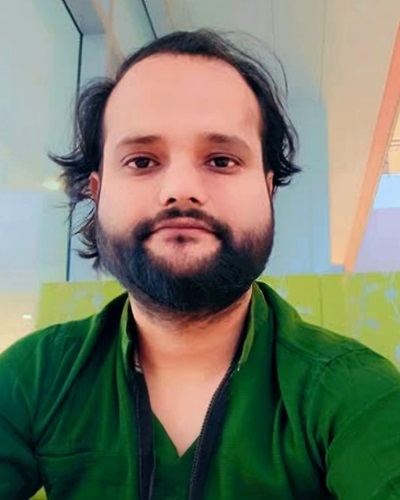
Paul W. Buehler, PharmD, PhD
Professor, Pathology and Pediatrics
Phone: 410-706-5171
Email: pbuehler@som.umaryland.edu
Paul W. Buehler, PharmD, PhD, is a pharmacologist and toxicologist who utilizes both applied and mechanistic approaches to understand red blood cell hemolysis and the downstream effects extracellular hemoglobin, heme and iron toxicity. His work focuses on genetic/acquired anemias as well as toxin and mechanical device induced hemolysis to characterize the genomic and proteomic changes in tissue that preempt or coincide with pathology. This work has led to significant discoveries related to toxicant induced red blood cell damage following intravenous abuse of Opana ER. This collaborative work with FDA has contributed to the recall of the deterrent formulated opiate, Opana ER (Oxymorphone HCl extended release) after a shift toward greater intravenous abuse and subsequently increased clinical cases of thrombotic microangiopathy and hemolytic uremic syndrome.
An important aspect of Dr. Buehler’s work is to identify ways to slow, reverse or prevent the effects of intra- and extra-vascular hemolysis induced pathobiology using plasma and recombinant constructs of haptoglobin, hemopexin and transferrin as well identifying methods to upregulate these proteins in states of acute and chronic depletion. The post-hemolysis molecular management of hemoglobin, hemin and iron are controlled by an efficient system of binding/transport proteins that ultimate target monocyte and macrophage cellular receptors (CD163, CD91, TfR1,2). This system, and associated transport proteins, represent an important first line of defense against toxicity associated with hemolytic processes and offer several targets for therapeutic development.
From a biopharmaceutical product development perspective, Dr. Buehler has an extensive knowledge base in pre-clinical therapeutics development with over fifteen years of regulatory integrated research experience as a pharmacologist in both the Center for Drug Evaluation and Research and the Center for Biologics Evaluation and Research at the FDA. He has evaluated and guided industry, academic and other government-based sponsors on pre-clinical product development at pre-IND, IND, NDA and BLA stages on more than two hundred individual applications including multiple medical counter measures applications involving the animal rule. Many of his experiences include product development guidance on vascular, coagulation, immune modulatory and transfusion-based therapeutics spanning from the pre-IND stage to NDA or BLA application and product licensure. He has been involved in the review and approval of more than ten currently licensed products for the treatment of hereditary angioedema, hemophilia, thrombotic thrombocytopenic purpura, protein C deficiency, immune deficiencies and blood loss.
Research Team

Fantao Meng, PhD
Research Associate, Pediatrics
Phone: 410-706-5171
Email: Fantao.Meng@som.umaryland.edu
Dr. Meng is a Research Associate at the Center for Blood Oxygen Transport and Hemostasis (CBOTH), with more than 25 years of specialized experience in protein chemistry, focusing on the development of hemoglobin-based oxygen carriers (HBOCs). Before joining CBOTH, he held roles as Director of Research and Development and Quality Control Manager at HbO2 Therapeutics, where he led innovative projects for five years. In 2014, Dr. Meng received an ORISE Fellowship (Advanced Scientist) from the FDA, enabling him to contribute to the Biochemistry and Vascular Laboratory within the Office of Blood Research and Review for five years. Earlier in his career, he spent a decade as an Instructor and Postdoctoral Fellow at Albert Einstein College of Medicine. Dr. Meng earned his PhD from the National Key Laboratory of Biochemical Engineering at the Chinese Academy of Sciences in China.

Kiruphagaran Thangaraju, PhD
Postdoctoral Fellow
Phone: 410-706-6074
Email: kthangaraju@som.umaryland.edu
Dr. Thangaraju is a postdoctoral fellow in the Center for Blood Oxygen Transport and Hemostasis (CBOTH). He earned his PhD in Biomedicine from the University of Debrecen, Hungary, and MSc in Molecular Biotechnology from the University of Bonn, Germany. His PhD work focused on dissecting the role of Transglutaminase 2 on pathogenesis of Huntington’s disease and was funded by an EU Marie Skłodowska-Curie Fellowship. His background is in molecular biology and his research focuses on the effects of red blood cell extracellular vesicles and microRNAs secreted under physiological and pathological conditions. This work is targeted to evaluate the physiological, pathophysiological, and potential therapeutic effects of red blood cell-derived extracellular microRNAs in pre-clinical models and clinical disease.

Saini Setua, PhD
Postdoctoral Fellow
Phone: 410-706-6074
Email: ssetua@som.umaryland.edu
Dr. Saini Setua is a postdoctoral fellow in the Center for Blood Oxygen Transport and Hemostasis (CBOTH). She earned her PhD in Pharmaceutical Sciences from the University of Tennessee Health Science Center, Memphis. Her PhD research involves the development of novel therapeutic strategies for pancreatic cancer treatment, such as patient-derived exosome-based personalized therapeutics and molecular mechanisms of therapeutic microRNAs in pancreatic cancer. Saini completed her Bachelor’s and Master’s degrees at West Bengal University of Technology, Kolkata, India. Her current research focuses on the physiology and pathophysiological role of red blood cell-derived extracellular vesicles in diseased states. Additionally, she is working towards understanding the genotypic and phenotypic alteration of the vascular endothelium and target microRNA-based therapies using extracellular vesicles.

Saurabh Pal, PhD
Postdoctoral Fellow
Phone: 410-706-6074
Email: Saurabh.Pal@som.umaryland.edu
Dr. Pal is a postdoctoral fellow at the Center for Blood Oxygen Transport and Hemostasis (CBOTH), with a PhD in Biosciences from AcSIR-Indian Institute of Toxicology Research, India. He has extensive expertise in mechanistic and applied approaches to study complex biological processes, particularly in the context of toxicology and renal pathophysiology. During his doctoral research, Dr. Pal focused on the effects of Patulin mycotoxin on kidney health, specifically investigating its role in acute and chronic renal toxicity. His research uncovered a novel mechanism whereby low-dose Patulin exposure triggers epithelial-to-mesenchymal transition-like profibrotic changes in normal proximal tubule renal epithelial cells. This process was driven by activation of the TGF-β/Smad pathway, facilitated through elevated levels of EMT markers slug and snail. His findings further identified key pathways, including MAPKs, cJun/Fos, and TGF-β1/Smad signaling, elucidating critical insights into renal toxicity mechanisms.
